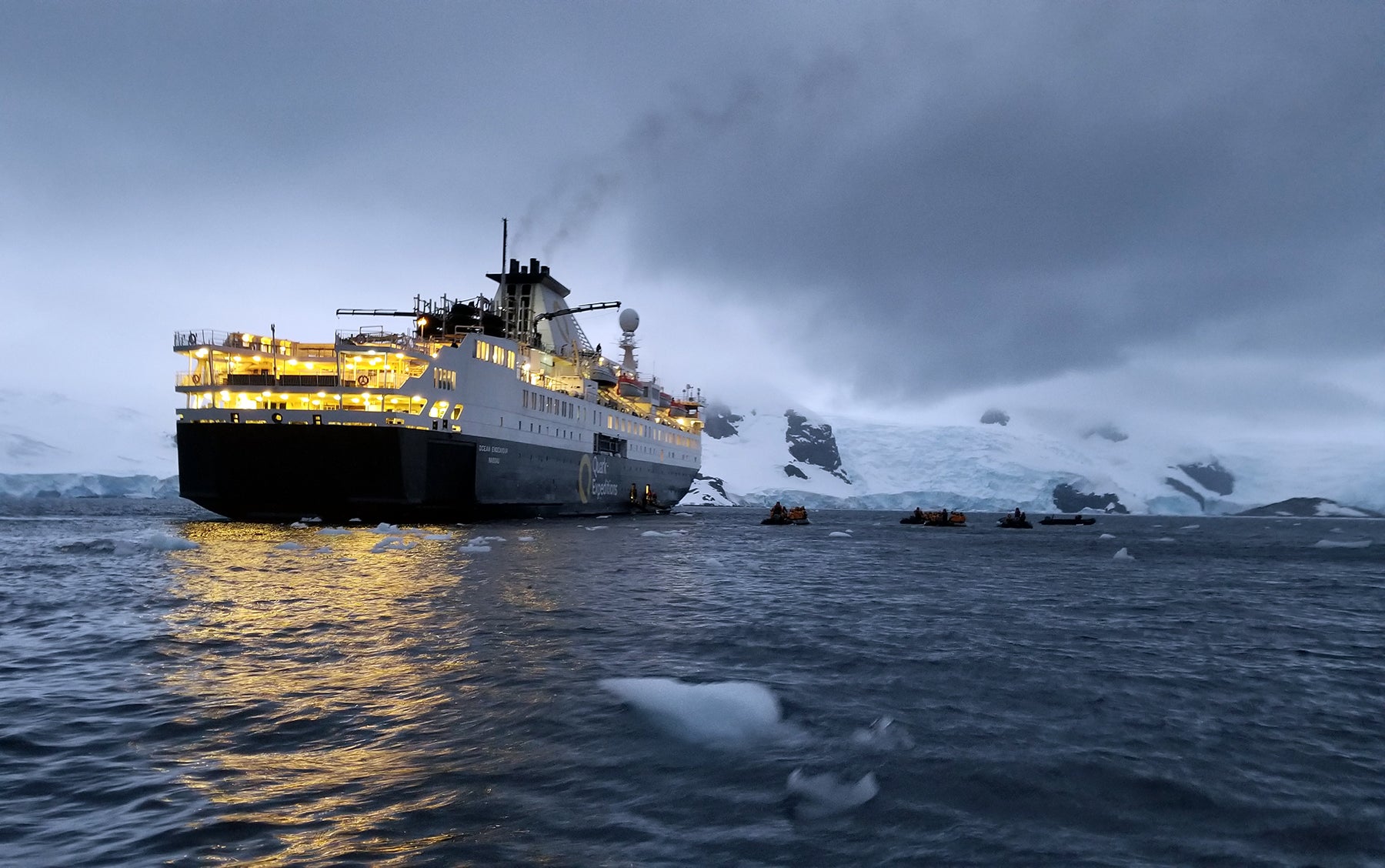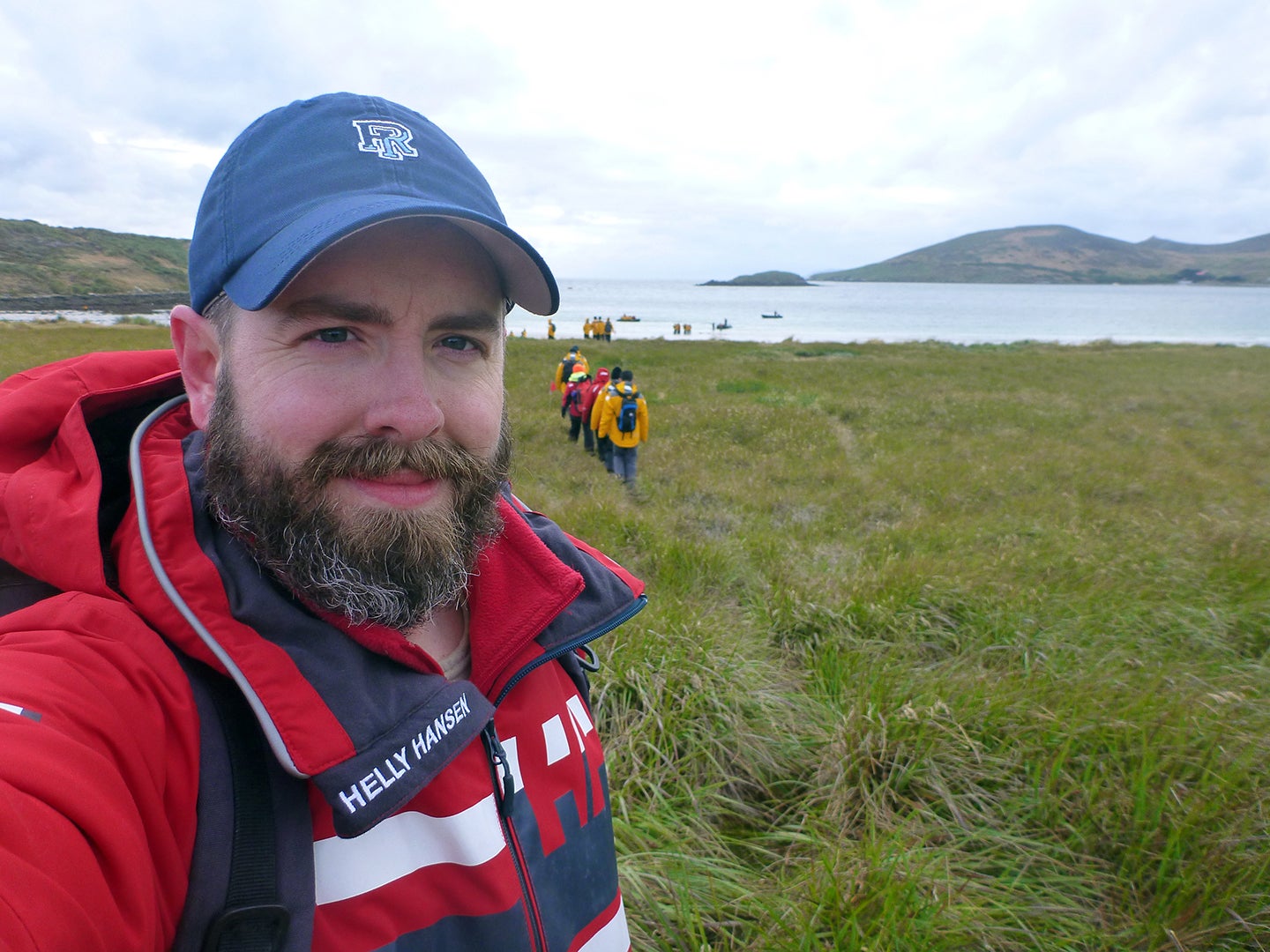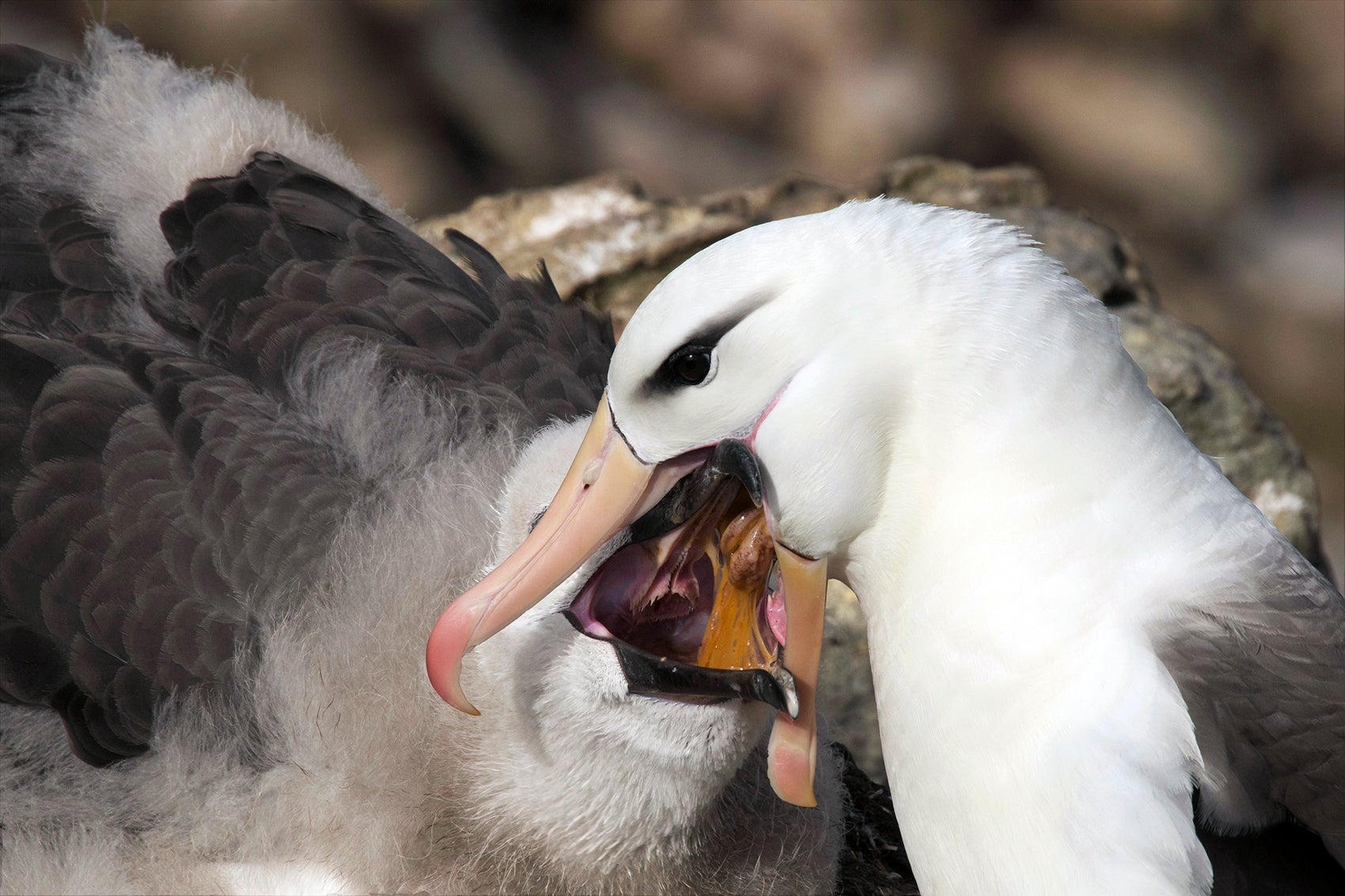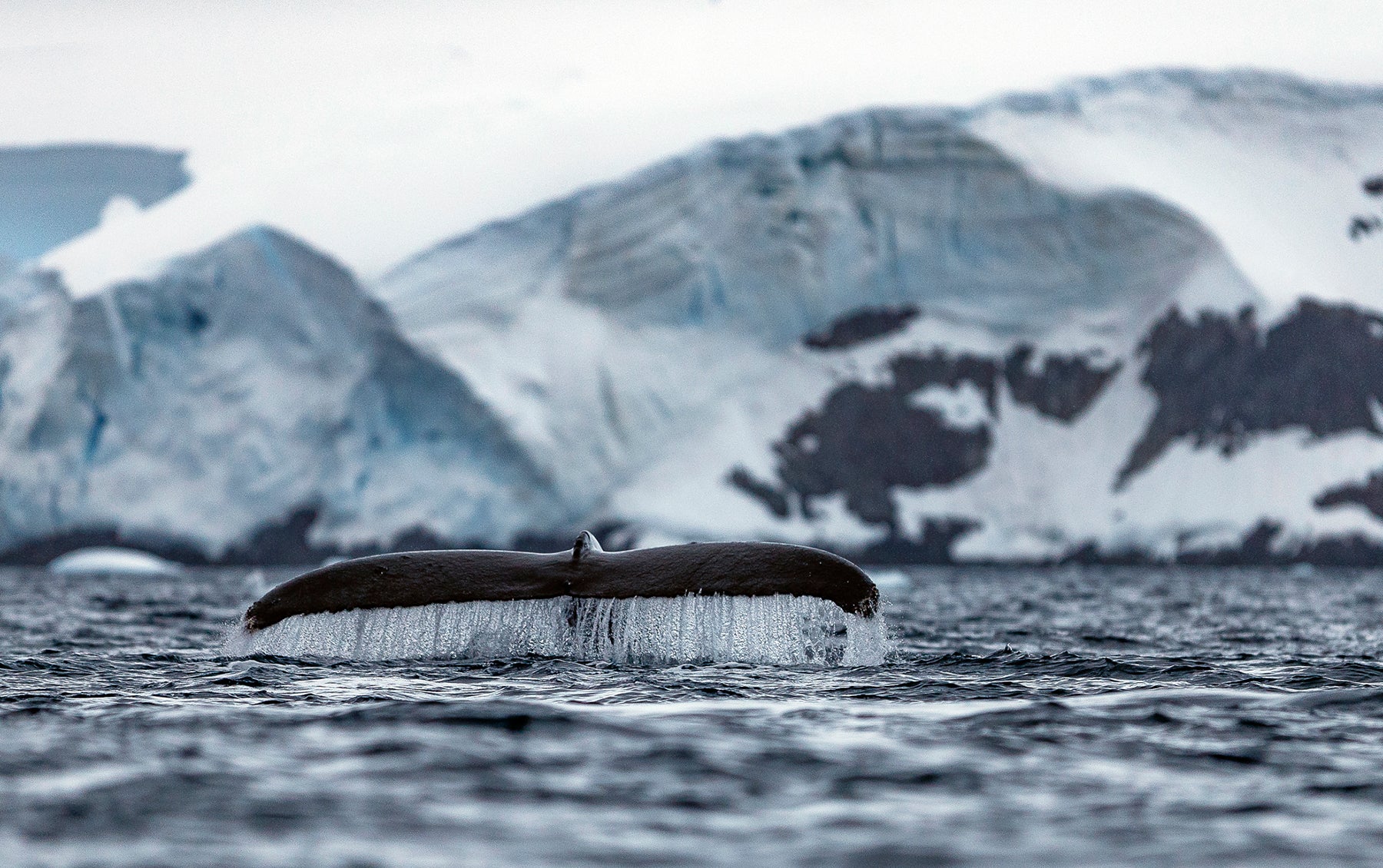In February, GSO professor Kelton McMahon participated in an Antarctic research cruise as part of a multi-year project funded by the National Science Foundation (NSF). The goal: to study how the Southern Ocean food web has responded to environmental changes in the past, and predict how the ecosystem might respond to a changing climate in the future.
Penguins play a pivotal role in Dr. McMahon’s research. The charismatic creatures serve as sentinel species for environmental change, and they occupy a central node in the Southern Ocean food web, recording geochemical clues about diet and migration patterns in their tissues. Dr. McMahon spent three weeks in the Antarctic gathering samples of penguin feathers and eggshells and conducted paleontological excavations to collect penguin feathers and eggshells that are hundreds to thousands of years old.
Now Dr. McMahon is working with his students at the newly built Ocean Ecogeochemistry Laboratory at GSO to compare the isotope values of modern penguin tissues to historic museum archives and ancient excavated samples. With his national and international research partners, Dr. McMahon will use these data to test hypotheses about how both historic whaling in the 1800s and early 1900s and rapid warming in the past century have altered the food web structure and population dynamics of Antarctic penguins.






